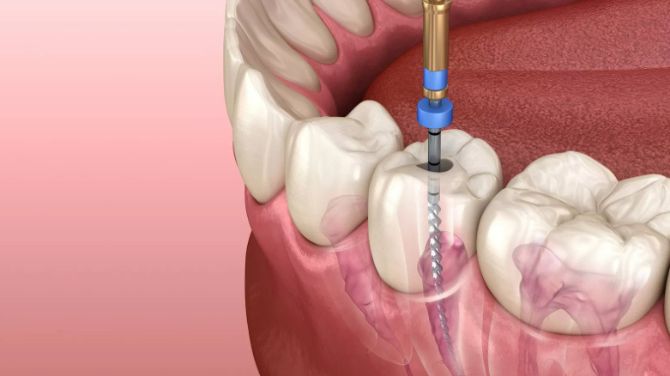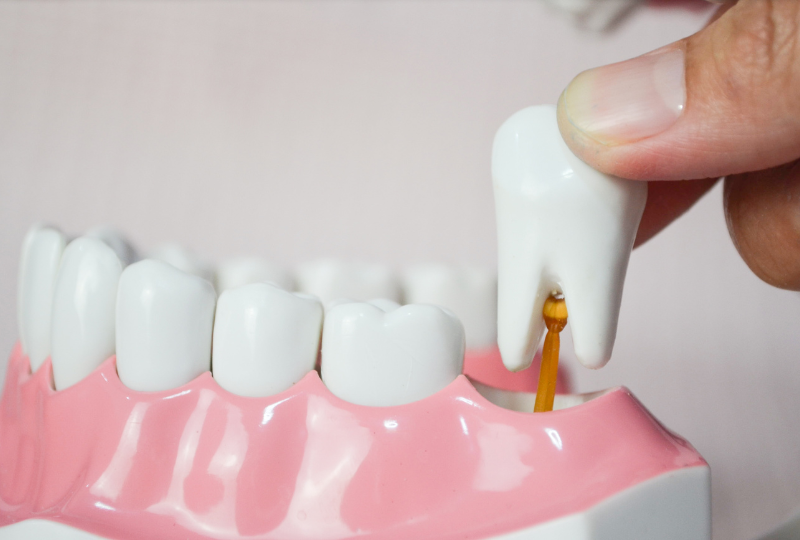Are you experiencing discomfort in the back of your mouth that just won’t seem to go away? Chances are, those pesky wisdom teeth might be causing some trouble. Wisdom teeth, also known as third molars, can often bring a host of issues and leave us feeling less than wise. But fear not! In this blog post, we’ll dive into the common problems associated with wisdom teeth and provide you with helpful tips on how to deal with them. So grab a cup of tea and get ready to gain some wisdom on those troublesome teeth!
What Are Wisdom Teeth?
Wisdom teeth, also known as third molars, are the last set of teeth to emerge in our mouths. They typically make their appearance between the ages of 17 and 25, a time when we’re supposedly wiser (hence the name). However, these late bloomers often cause more trouble than enlightenment.
Unlike our other teeth that serve essential functions for chewing and speaking, wisdom teeth aren’t necessary for everyday life. In fact, many people don’t even have enough space in their jaws to accommodate them properly. This lack of space often leads to various problems.
One common issue with wisdom teeth is impaction. When there isn’t enough room for these extra molars to fully erupt, they become trapped beneath the gum line or against neighboring teeth. This can result in pain, swelling, infection, and even damage to nearby structures like adjacent teeth or jawbone.
Even if wisdom teeth manage to fully emerge from the gums without any issues, they can still be difficult to clean due to their location at the back of the mouth. As a result, they become more prone to decay and gum disease compared to other teeth.
In some cases,wisdom teeth may grow at awkward angles,causing them to push against surrounding molars.This crowding effect not only affects your bite but also increases your risk of developing temporomandibular joint (TMJ) disorders or shifting tooth positions over time.
Overall, wisdom teeth may seem like troublesome companions rather than wise advisors.
But fear not! There are several treatment options available that can alleviate pain and prevent further complications caused by these rebellious molars.
So let’s explore how you can deal with those pesky wisdom tooth problems head-on!
Common Issues with Wisdom Teeth
Wisdom teeth, also known as third molars, are the last set of teeth to erupt in our mouths. While some people may have no issues with their wisdom teeth, others may experience a range of problems.
One common issue is impaction, which occurs when there isn’t enough space for the wisdom tooth to fully emerge or grow properly. This can cause pain and discomfort, as well as potential damage to adjacent teeth.
Another problem is overcrowding. If your mouth is already crowded with other teeth, the eruption of wisdom teeth can push existing teeth out of alignment and disrupt your bite.
Infections and gum disease are also common issues associated with wisdom teeth. When the partially erupted tooth creates a flap of gum tissue that traps food particles and bacteria, it can lead to inflammation and infection.
Cavities are yet another concern when it comes to wisdom teeth. Due to their location at the back of the mouth, these molars can be difficult to clean thoroughly, making them more susceptible to decay.
In some cases, cysts or tumors may develop around impacted wisdom teeth. These growths can cause damage to nearby structures such as bones or roots if left untreated.
It’s important not to ignore any signs or symptoms related to your wisdom teeth. Regular dental check-ups allow your dentist to monitor their development and address any potential issues early on.
Symptoms And Signs Of Wisdom Tooth Problems
Symptoms and signs of wisdom tooth problems can vary from person to person, but there are some common indicators that you may be experiencing issues with these third molars. One of the most noticeable symptoms is pain or discomfort in the back of your mouth where your wisdom teeth are located. This pain can range from mild to severe and may be accompanied by swelling and redness.
Another sign of wisdom tooth problems is difficulty opening your mouth fully or a limited range of motion in your jaw. This can make it difficult to eat, speak, or even brush your teeth properly. You may also notice an unpleasant taste or odor coming from the area around your wisdom teeth, which could indicate infection.
In some cases, impacted wisdom teeth can cause crowding and shifting of other nearby teeth, leading to bite problems and changes in alignment. Additionally, if you experience recurring headaches or earaches without any apparent cause, it’s possible that they could be related to underlying issues with your wisdom teeth.
If you’re experiencing any of these symptoms or suspect that you may have problems with your wisdom teeth, it’s important to visit a dentist for an evaluation. They will be able to assess the condition of your wisdom teeth through X-rays and recommend appropriate treatment options based on their findings. Remember, addressing these issues early on can help prevent further complications down the line!
Treatment Options For Wisdom Tooth Pain
Treatment options for wisdom tooth pain can vary depending on the severity of the problem. If you’re experiencing mild discomfort, over-the-counter pain relievers such as ibuprofen or acetaminophen may provide temporary relief. However, it’s important to consult with a dentist to determine the underlying cause of the pain and develop a proper treatment plan.
In some cases, antibiotics might be prescribed if there is an infection present. These medications can help reduce inflammation and prevent further complications. Additionally, rinsing your mouth with warm saltwater can provide some relief by reducing swelling and killing bacteria.
For more severe cases of wisdom tooth pain, dental procedures such as tooth extraction or root canal therapy may be necessary. Extraction is often recommended when there is overcrowding or impaction of the teeth, causing significant pain and potential damage to neighboring teeth.
Root canal therapy involves removing infected pulp from within the tooth and filling it with a rubber-like material to preserve its structure. This procedure can alleviate pain caused by decay or infection in the wisdom tooth.
It’s important to remember that each case is unique, so it’s best to consult with a dental professional who can evaluate your specific situation and recommend the most appropriate treatment option for you
Wisdom Tooth Extraction: Procedure And Recovery Process
Wisdom tooth extraction is a common procedure performed by dentists to alleviate pain and prevent further dental issues. The process typically involves numbing the area with local anesthesia before removing the affected tooth. In some cases, if the tooth is impacted or hasn’t fully erupted, a small incision may be made in the gum tissue to access and remove it.
Once the wisdom tooth has been extracted, you may experience some discomfort and swelling for a few days. It’s important to follow your dentist’s post-operative instructions carefully to promote healing and minimize any potential complications.
During the recovery process, it is recommended to avoid strenuous activities that could dislodge blood clots or cause bleeding. Additionally, sticking to soft foods like mashed potatoes or smoothies can help prevent any unnecessary irritation of the surgical site.
Your dentist may prescribe pain medication or recommend over-the-counter options such as ibuprofen for managing any residual pain during this time. Applying an ice pack on your cheek intermittently can also help reduce swelling.
It’s crucial not to disturb the surgical area while brushing your teeth during recovery. Instead, rinsing gently with warm saltwater can aid in keeping your mouth clean and free from infection.
Every individual heals differently after wisdom tooth extraction; therefore, it’s essential to attend all scheduled follow-up appointments with your dentist so they can monitor your progress and address any concerns that may arise.
Remember that everyone’s experience will differ slightly when it comes to wisdom tooth extraction recovery. Following proper care guidelines provided by your dentist will ensure a smoother healing journey overall.
Tips for Managing Pain and Discomfort after Wisdom Tooth Extraction
You’ve made it through the wisdom tooth extraction procedure, but now you’re faced with the challenge of managing pain and discomfort during your recovery. Fortunately, there are several tips that can help ease your discomfort and promote healing.
Make sure to follow your dentist or oral surgeon’s instructions regarding pain medication. They may prescribe prescription-strength pain relievers or recommend over-the-counter options such as ibuprofen. Take these medications as directed to stay ahead of any potential pain.
Applying an ice pack to the affected area can also provide relief by reducing swelling and numbing the area. Just be sure to wrap the ice pack in a cloth before applying it to avoid direct contact with your skin.
Maintaining good oral hygiene is crucial during this time, but be gentle when brushing and flossing around the extraction site. Use a soft-bristled toothbrush and rinse gently with warm saltwater multiple times a day to keep the area clean.
Additionally, stick to eating soft foods like soups, smoothies, mashed potatoes, and yogurt for a few days following surgery. Avoid hard or crunchy foods that could irritate or dislodge blood clots forming in the sockets.
Give yourself plenty of rest during recovery. Avoid strenuous activities that could increase bleeding or prolong healing time.
Remember that every individual’s experience will differ slightly; therefore it is important to consult with your dentist or oral surgeon for personalized advice based on your specific situation.
Prevention Tips For Avoiding Wisdom Tooth Problems:
1. Maintain good oral hygiene: Regular brushing and flossing are essential to keep your teeth and gums healthy, including your wisdom teeth. Use a soft-bristled brush and fluoride toothpaste to gently clean all surfaces of your teeth.
2. Visit your dentist regularly: Regular dental check-ups can help identify any potential issues with your wisdom teeth early on. Your dentist can monitor their growth and recommend necessary treatments or extractions if needed.
3. Watch what you eat: Avoid hard or sticky foods that can put excessive pressure on your jaw, potentially causing discomfort or damage to developing wisdom teeth. Opt for a balanced diet rich in nutrients that support overall dental health.
4. Practice proper chewing habits: Chew food evenly on both sides of the mouth to distribute the force more evenly across all teeth, reducing strain specifically on the back molars, including the wisdom teeth.
5. Seek orthodontic treatment if necessary: If you have misaligned or overcrowded teeth, consider orthodontic treatment like braces or aligners to create enough space for your wisdom teeth to erupt properly.
Remember, prevention is always better than cure when it comes to maintaining dental health! By following these simple tips, you can reduce the likelihood of experiencing problems with your wisdom teeth in the future
Dealing with wisdom tooth problems can be a daunting experience, but with the right knowledge and action, you can alleviate the pain and discomfort that comes with it. By understanding what wisdom teeth are, common issues associated with them, and the available treatment options, you are better equipped to handle any potential problems.
If you’re experiencing symptoms such as pain, swelling, or difficulty opening your mouth fully, it’s important to consult your dentist or oral surgeon promptly. They will be able to assess your situation and determine the best course of action.
In many cases, wisdom tooth extraction is necessary to resolve these issues. The procedure itself may seem intimidating at first glance but rest assured that dental professionals perform it routinely with minimal complications. Following the extraction process, proper post-operative care is crucial in ensuring a smooth recovery.
Managing pain and discomfort after wisdom tooth extraction involves following your dentist’s instructions diligently. This includes taking prescribed medication as directed and practicing good oral hygiene habits like gentle brushing and rinsing with saltwater solution.
Prevention is always better than cure when it comes to wisdom teeth problems. While not all issues can be avoided entirely due to genetic factors or limited mouth space, there are steps you can take to minimize their impact. Regular dental check-ups allow for early detection of developing problems so they can be addressed before they worsen.
Remember that everyone’s experience with their wisdom teeth is unique; what works for one person may not work for another. It’s essential to seek professional guidance from your dentist or oral surgeon who will tailor a treatment plan specific to your needs.
Though dealing with wisdom teeth woes isn’t exactly fun-filled excitement (!), understanding the causes behind common issues and knowing how best to address them empowers you on your journey towards optimal oral health! So don’t let those pesky third molars get in the way – take charge of your dental well-being today!




